The lifespan of an air conditioner typically ranges from 15 to 20 years, depending on factors such as usage, maintenance, and the quality of the unit. Regular servicing can extend its longevity.
Curious about extending your Air Conditioner Lifespan? Whether you’ve just installed your first unit or are a seasoned homeowner, understanding the key factors influencing your AC’s longevity is crucial. In this guide, we’ll unravel the secrets to optimizing your Air Conditioner Lifespan. From routine maintenance practices to smart usage habits, discover actionable tips to keep your cooling companion running efficiently for years to come. Say goodbye to premature breakdowns and hello to a chilled, extended lifespan for your air conditioning system.
How Long Do Air Conditioners Last?
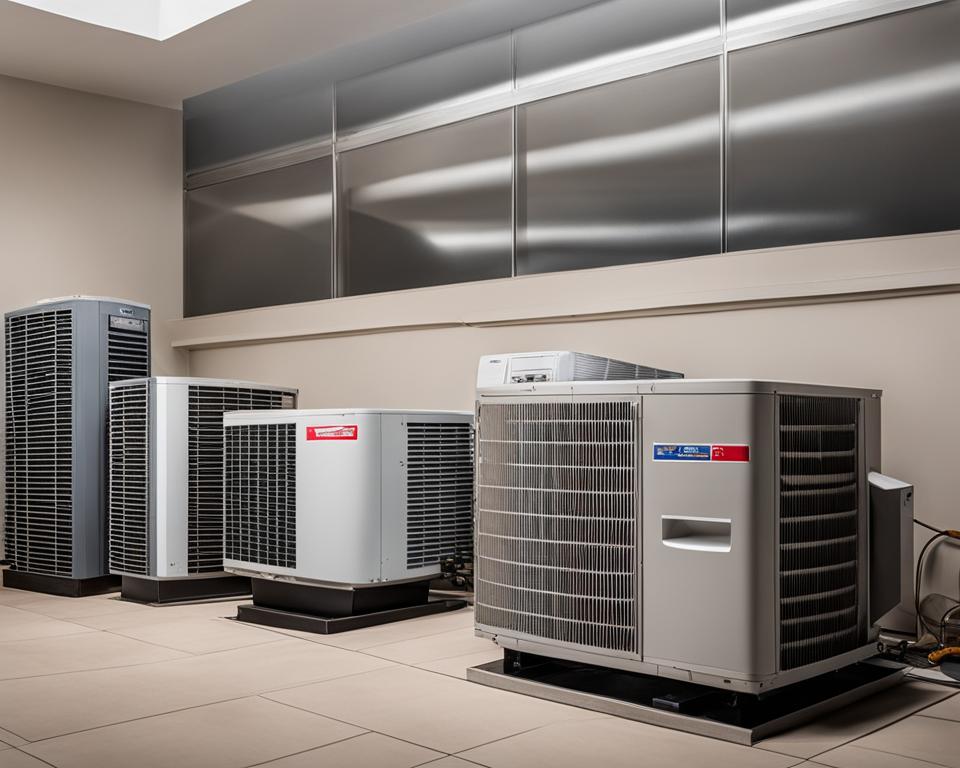
Air conditioners play a crucial role in maintaining comfortable indoor temperatures, especially in regions with extreme climates. The lifespan of an air conditioner depends on various factors, including the type of system, maintenance practices, and usage patterns. Here, we’ll delve into the expected lifespans of different types of air conditioners and provide a comprehensive lifespan chart.
Central Air Conditioners:
Central air conditioning systems are commonly found in larger homes and commercial buildings. On average, these systems have a lifespan of 15 to 20 years.
Regular maintenance, such as cleaning or replacing air filters, checking refrigerant levels, and inspecting the ductwork, can significantly contribute to extending the lifespan of central air conditioners. Additionally, advancements in technology and energy efficiency may influence the decision to upgrade to a newer system before the end of its natural lifespan.
Window Air Conditioners:
Window air conditioners are typically more affordable and easier to install than central systems. However, they have a shorter lifespan, averaging around 10 to 15 years.
Regular cleaning of filters and coils, as well as ensuring proper insulation around the unit, can help extend the lifespan of a window air conditioner. Due to their lower initial cost, some homeowners may opt to replace these units more frequently rather than investing in repairs.
Ductless Mini-Split Systems:
Ductless mini-split systems are becoming increasingly popular for their energy efficiency and flexibility. These systems generally have a lifespan of 15 to 20 years.
Routine maintenance, including cleaning the filters, checking refrigerant levels, and inspecting the outdoor unit, is essential for optimal performance. Mini-split systems are known for their zoning capabilities, allowing for customized cooling in different areas of a home, and this flexibility often contributes to their longevity.
Portable Air Conditioners:
Portable air conditioners are a convenient option for cooling individual rooms. However, due to their design and portability, they tend to have a shorter lifespan, averaging around 8 to 12 years.
Regular maintenance involves cleaning or replacing filters and ensuring proper ventilation for the unit. While portable air conditioners may be a cost-effective solution for temporary cooling needs, they may not be as durable as other types of systems.
Lifespan Chart:
| Type of Air Conditioner | Lifespan Range | Factors Influencing Lifespan |
| Central Air Conditioners | 15 to 20 years | Maintenance, usage patterns, technological advancements |
| Window Air Conditioners | 10 to 15 years | Maintenance, usage patterns, cost considerations |
| Ductless Mini-Split Systems | 15 to 20 years | Maintenance, technological advancements, zoning capabilities |
| Portable Air Conditioners | 8 to 12 years | Maintenance, portability, cost considerations |
It’s important to note that these lifespan ranges are general estimates, and individual experiences may vary. Regular professional inspections and timely repairs can help maximize the efficiency and longevity of any air conditioning system. Additionally, advancements in technology and energy efficiency may influence homeowners to upgrade to newer models even before reaching the upper limit of a system’s lifespan.
Signs of a Failing Air Conditioner
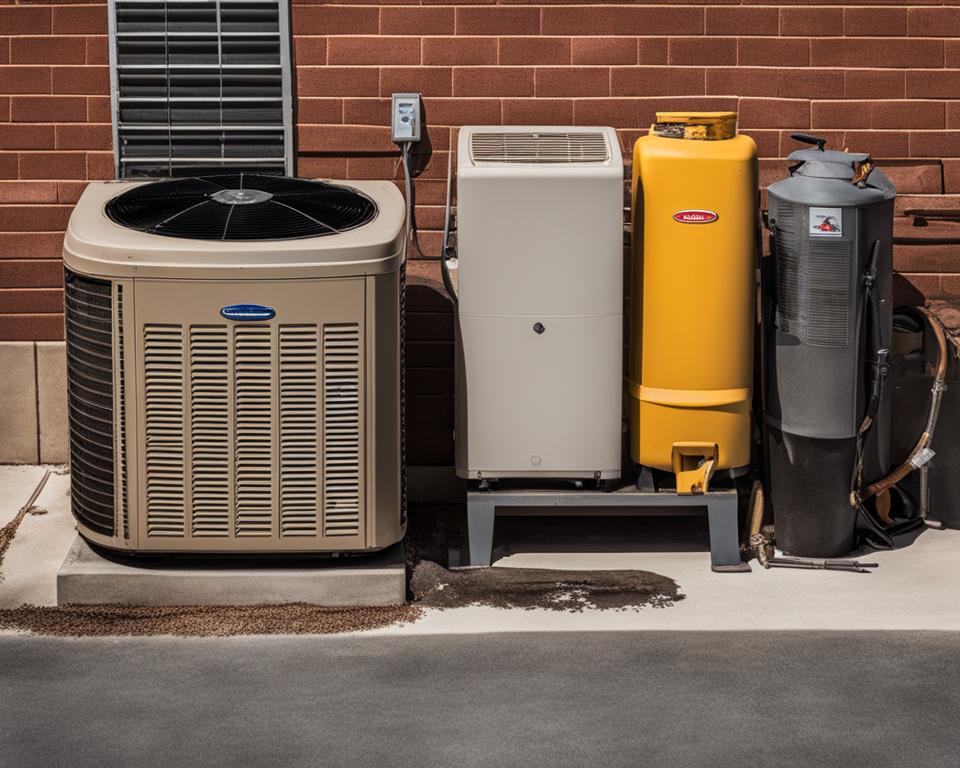
A failing air conditioner can lead to discomfort, increased energy bills, and potential costly repairs if not addressed promptly. Recognizing the signs of a struggling unit is crucial for timely intervention. Here are five key indicators that your air conditioner may be on the brink of failure:
1. Weak Airflow:
One of the initial signs of an ailing air conditioner is reduced airflow. If you notice that the air coming from the vents is weaker than usual, it could be indicative of issues with the blower or a clogged air filter. Reduced airflow makes the system work harder, compromising its efficiency and, over time, can lead to a complete breakdown.
2. Warm Air Output:
A clear indication that your air conditioner is not functioning properly is when it fails to produce cool air. If the air coming from the vents is warmer than the set temperature, it may suggest problems with the refrigerant levels, compressor failure, or issues with the overall cooling system. Addressing this promptly is crucial to avoid further damage to the unit.
3. Unusual Noises:
Unusual or loud noises emanating from the air conditioner can be a sign of impending failure. Clanking, banging, or grinding sounds may indicate loose or damaged components, such as the fan or motor. Ignoring these noises can lead to more significant damage and potential system failure.
4. Frequent Cycling On and Off:
An air conditioner that constantly cycles on and off, known as short cycling, is not only inefficient but also a sign of potential trouble. Short cycling can be caused by various issues, including an oversized unit, low refrigerant levels, or a malfunctioning thermostat. This behavior puts additional stress on the system and can lead to premature wear and tear.
5. Visible Leaks or Moisture:
The presence of water or refrigerant leaks around the air conditioner is a serious red flag. Moisture can lead to mold growth, corrosion, and electrical issues, all of which can contribute to system failure. Identifying and addressing leaks promptly is crucial to prevent further damage to the unit and maintain indoor air quality.
Factors That Affect Air Conditioner Lifespan:
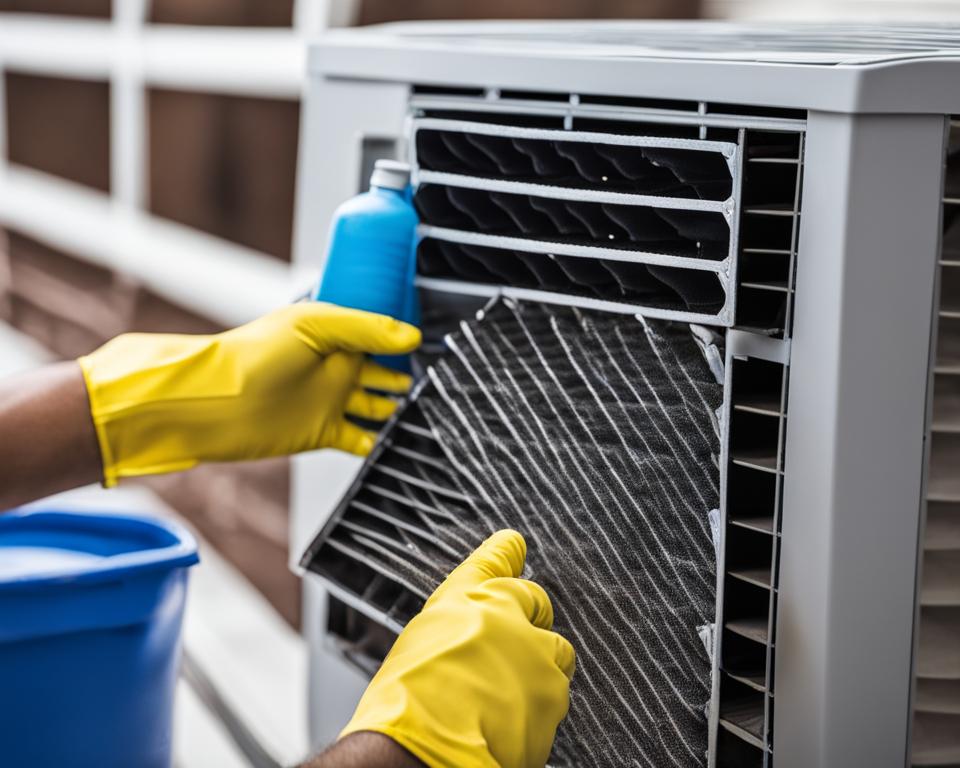
When it comes to prolonging air conditioner lifespan, there are many factors to consider. Understanding what affects the lifespan of your AC unit can help you make informed decisions about upkeep and maintenance.
1. Regular Maintenance:
One of the primary factors affecting the lifespan of an air conditioner is the level of maintenance it receives. Regular upkeep, such as cleaning or replacing air filters, checking refrigerant levels, and inspecting the overall system for wear and tear, is essential. Neglecting maintenance can lead to reduced efficiency, increased energy consumption, and ultimately premature failure of the unit.
To ensure optimal performance and longevity, it is recommended to follow the manufacturer’s maintenance guidelines, which often include regular professional inspections.
2. Quality of Installation:
The installation process is critical in determining how well an air conditioner functions throughout its lifespan. Improper installation, such as incorrect sizing, inadequate insulation, or faulty ductwork, can lead to various issues. These issues may include inefficient cooling, increased energy consumption, and added stress on components, all of which contribute to a shortened lifespan.
To maximize the lifespan of your air conditioner, it is crucial to hire a qualified HVAC professional for the installation process. A proper installation ensures that the system operates at its peak efficiency and longevity.
3. Environmental Conditions:
The external environment in which an air conditioner operates also significantly influences its lifespan. Extreme weather conditions, such as excessive heat, humidity, or corrosive elements in the air, can accelerate wear and tear on the system components. Additionally, exposure to debris, leaves, and other outdoor elements can clog air filters and reduce the unit’s efficiency.
To mitigate these factors, it is advisable to install the air conditioner in a shaded and clean area. Regular cleaning of the outdoor unit and protecting it from harsh weather conditions can help extend the system’s lifespan.
4. Usage Patterns:
The frequency and intensity of air conditioner usage directly impact its longevity. Overworking the system by setting excessively low temperatures or running it continuously without breaks can lead to increased wear on components. On the other hand, sporadic and inconsistent usage can also have negative effects, as certain components may deteriorate due to lack of regular operation.
To optimize the lifespan of an air conditioner, it is recommended to use it judiciously and follow energy-efficient practices, such as setting the thermostat at moderate temperatures and using programmable thermostats to regulate cooling cycles.
5. Quality of Components:
The quality of the components used in manufacturing an air conditioner plays a pivotal role in its overall lifespan. Systems equipped with high-quality compressors, coils, and other crucial parts are more likely to endure the rigors of regular operation and environmental factors.
When purchasing an air conditioner, it is advisable to invest in a reputable brand known for using durable and reliable components. Though initial costs might be higher, the long-term benefits in terms of longevity and efficiency can outweigh the upfront expenses.
6. Upkeep of Air Ducts:
The condition of the air ducts through which the cooled air circulates is often overlooked but can significantly impact the lifespan of an air conditioner. Leaks, blockages, or inadequate insulation in the ductwork can result in reduced airflow, making the system work harder to maintain the desired temperature.
Regular inspection and maintenance of air ducts are crucial to ensure that the air conditioner operates efficiently. Properly sealed and insulated ducts contribute to a more balanced and less stressed operation, ultimately extending the system’s lifespan.
7. Technological Advances and Upgrades:
The rapid pace of technological advancements in the HVAC industry introduces new features and energy-efficient options. While older air conditioners may still function adequately, newer models often come with improved technology that enhances performance and reduces energy consumption.
Consider upgrading to a more modern and energy-efficient system to not only enjoy the benefits of the latest technology but also to potentially extend the lifespan of the air conditioner. Newer models are designed with longevity and sustainability in mind, offering better durability and performance over time.
By understanding the factors that affect air conditioner lifespan, you can take steps to maintain and prolong the life of your unit. Regular maintenance, proper installation, and careful usage habits can help you get the most out of your cooling system.
By following these tips, you can ensure that your air conditioner lasts for many years and continues to keep you cool and comfortable, even during the hottest months of the year.
When to Replace an Old Air Conditioner
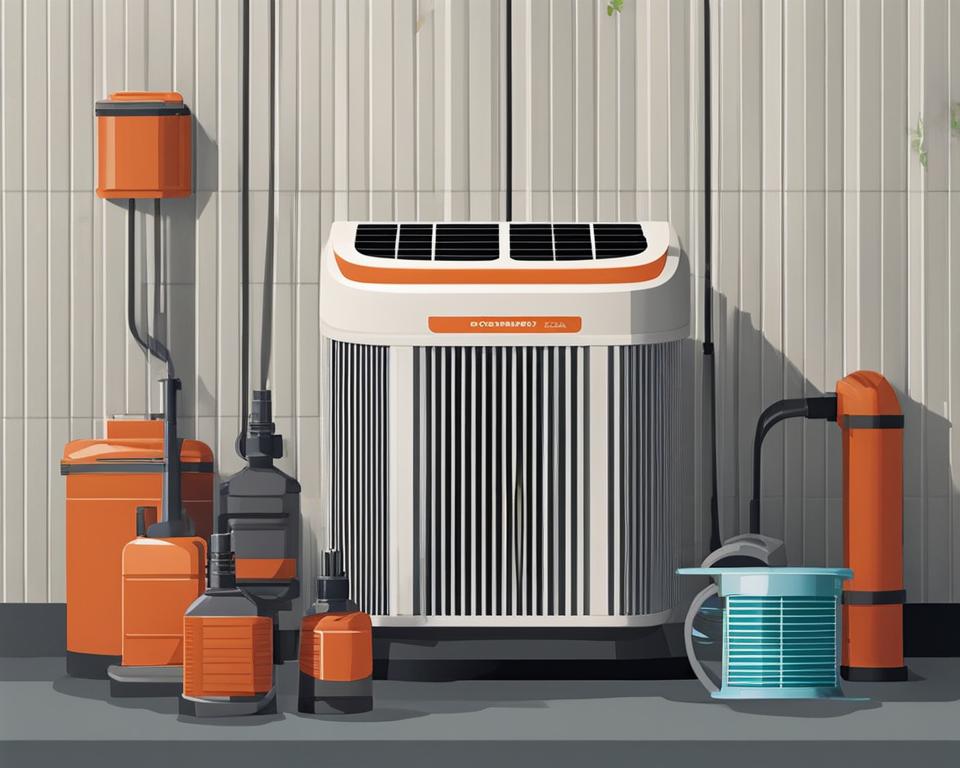
If you have an old air conditioner, it may be time to consider replacing it. While regular maintenance can extend the lifespan of your unit, there are several signs that suggest it’s time for an upgrade. Here are some tips for determining whether it’s time to replace your old air conditioner:
- Your energy bills are increasing: If you notice a significant increase in your energy bills, it could be a sign that your air conditioner is struggling to keep up. Older units tend to be less energy-efficient, so upgrading to a newer model could save you money in the long run.
- Your air conditioner requires frequent repairs: If you’re constantly calling a technician to fix your air conditioner, it may be more cost-effective to replace it. The cost of repairs can add up quickly, and a new unit could save you money in the long run.
- Your air conditioner is outdated: If your unit is more than 10 years old, it’s likely outdated compared to newer models. Modern air conditioners are more energy-efficient and offer advanced features like programmable thermostats, which can save you money on your energy bills.
Replacing your old air conditioner with a newer, more energy-efficient unit can help you save money on your energy bills and avoid costly repairs. Make sure to consult with a professional technician to determine the best replacement options for your home and budget.
Average Lifespan of an Air Conditioner
It’s important to know the average lifespan of an air conditioner, as this can help you make informed decisions about maintenance, repairs, or replacements. The typical length of time air conditioners last can vary depending on several factors.
According to Energy Star, the average lifespan of an air conditioner is around 15 years. However, this can vary based on the quality of the unit, how often it’s used, and how well it’s maintained. Factors such as the climate in which you live and the size of your home can also affect the lifespan of your air conditioner.
It’s essential to have a professional assess your air conditioner’s condition regularly to ensure that it’s running efficiently and effectively. Regular maintenance can extend the lifespan of your unit and help you avoid costly repairs or replacements.
Understanding the average lifespan of an air conditioner can help you plan and budget for any necessary repairs or replacements. By taking proper care of your unit and having it inspected regularly by a professional, you can extend its lifespan and enjoy cool and comfortable indoor air for years to come.
Importance of Proper Installation
One of the most critical factors in increasing the lifespan of your air conditioner is proper installation. When installing your AC unit, it’s important to pay attention to the manufacturer’s guidelines and ensure that the technician you hire is knowledgeable and experienced.
Improper installation can lead to a range of issues, including decreased efficiency, increased energy costs, and even a shorter lifespan for your unit. Additionally, a poorly installed air conditioner can pose safety risks, such as the potential for electrical problems or gas leaks.
When choosing an installation technician, be sure to do your research and ask for references or reviews from past customers. Look for someone who is licensed, insured, and experienced in installing your particular make and model of air conditioner.
Benefits of Proper Installation
By investing in proper installation for your air conditioner, you can enjoy a range of benefits that can help increase its lifespan and improve its performance. Some of these benefits include:
- Reduced risk of safety hazards
- Improved energy efficiency
- Increased comfort in your home or office
- Extended lifespan for your air conditioner
By taking the time to ensure that your air conditioner is installed correctly, you can avoid costly repairs or premature replacements down the line. With proper installation, you can extend the lifespan of your unit and enjoy reliable, efficient cooling for years to come.
The Role of Ten-Year Warranties
Investing in a new air conditioner can be a significant expense, so it’s essential to consider all available options before making a purchase. One feature to look for is a ten-year warranty. A warranty can provide peace of mind, knowing that if something goes wrong with your unit, you won’t be left with a hefty repair bill.
But a warranty’s benefits extend beyond just saving money on repairs. By purchasing an air conditioner with a ten-year warranty, you may also be investing in a longer lifespan for your unit. These warranties often come with specific maintenance requirements that, when followed, can help keep your AC in top shape and extend its lifespan.
It’s worth noting that while a ten-year warranty can be an excellent selling point for an air conditioner, it’s not a guarantee of a unit’s lifespan. The average lifespan of an air conditioner is around 10-15 years, depending on various factors. Still, a warranty can provide additional protection and potentially extend the life of your unit.
When shopping for a new air conditioner, be sure to read the fine print of any warranties offered. Look for details such as what maintenance requirements are necessary to uphold the warranty, what repairs are covered, and if there are any limitations to the coverage. Understanding these details can help you make an informed decision about which air conditioning unit to choose.
In conclusion, purchasing an air conditioner with a ten-year warranty can offer financial protection and potentially increase the lifespan of your unit. However, it’s important to remember that regular maintenance and proper care are also crucial for maximizing the lifespan of your air conditioner. By combining warranty coverage with other tips and strategies to extend your unit’s lifespan, you can enjoy reliable, efficient cooling for years to come.
Tips for Extending Air Conditioner Lifespan
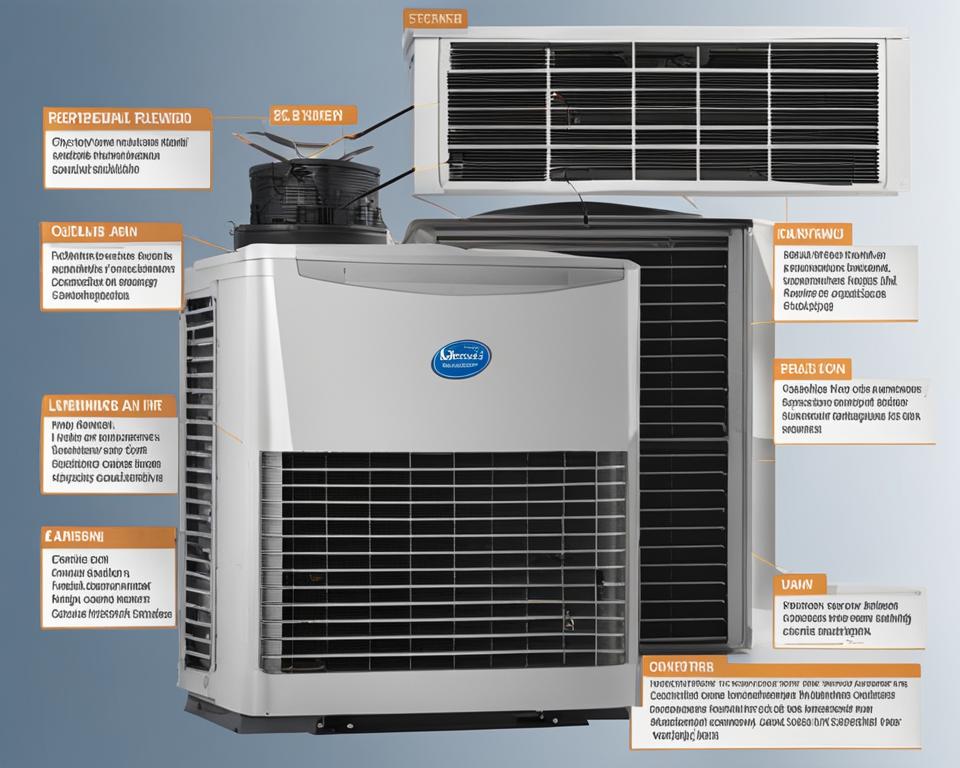
If you want to get the most out of your air conditioner, it’s essential to take steps to extend its lifespan. Here are some tips to help you do just that:
Keep the Filters Clean
One of the simplest things you can do to extend the lifespan of your air conditioner is to keep the filters clean. Dirty filters can put strain on your system and cause it to work harder than it needs to. Check your filters regularly and replace or clean them as needed.
Check the Condenser Unit
The condenser unit is located outside and can become clogged with debris over time. Make sure to check the area around the unit regularly, and clear away any leaves, branches, or other debris that may have accumulated. This can help ensure proper airflow and prevent damage to your system.
Adjust the Thermostat
Setting your thermostat to a higher temperature can help reduce the workload on your air conditioner and extend its lifespan. Consider adjusting the temperature by a few degrees when you’re not going to be home or when you’re sleeping.
Improve Insulation
Poor insulation can put a strain on your air conditioner and cause it to work harder than necessary. Consider adding insulation to your home, particularly in areas where cool air may escape, such as attics and crawl spaces.
Use Ceiling Fans
Using ceiling fans can help reduce the workload on your air conditioner by circulating cool air throughout your home. This can help you feel more comfortable without having to lower the temperature on your thermostat.
Regular Maintenance is Vital
First and foremost, regular maintenance is necessary to extend the lifespan of your air conditioner. From changing filters to scheduling professional tune-ups, taking care of your unit can make a significant difference in its performance and longevity. By keeping up with maintenance tasks, you can ensure that your air conditioner operates at peak efficiency and avoid unnecessary repairs down the road.
Identifying Warning Signs
Understanding the warning signs of a failing air conditioner is also crucial in extending its lifespan. From strange noises to poor airflow, identifying issues early on can prevent further damage and prolong the life of your unit. If you notice any of these warning signs, it’s essential to address them promptly to prevent more significant problems from developing.
Considering Repairs vs. Replacements
When it comes to repairing or replacing your air conditioner, making informed decisions can have a significant impact on its lifespan. While repairs may be a more affordable solution in the short term, it’s essential to consider the age and condition of your unit. If your air conditioner is nearing the end of its expected lifespan and requires frequent repairs, it may be more cost-effective to replace it with a newer, more energy-efficient model.
Proper Installation and Warranty Coverage
Finally, proper installation and warranty coverage also play a role in maximizing the lifespan of your air conditioner. Hiring a professional installer can ensure that your unit operates efficiently from the start, reducing the risk of damage and extending its lifespan. Additionally, investing in an air conditioner with a ten-year warranty can provide peace of mind and protect your unit from unexpected issues.
Overall, taking care of your air conditioner is essential for its longevity. By following the tips and insights shared in this article and making informed decisions about maintenance and replacements, you can extend the lifespan of your unit and enjoy cool, comfortable air for years to come.
Conclusion
After conducting research and gathering insights on the lifespan of air conditioners, it’s clear that taking care of your unit is essential for its longevity. By following the tips and strategies discussed in this article, you can help keep your air conditioner running smoothly for years to come.

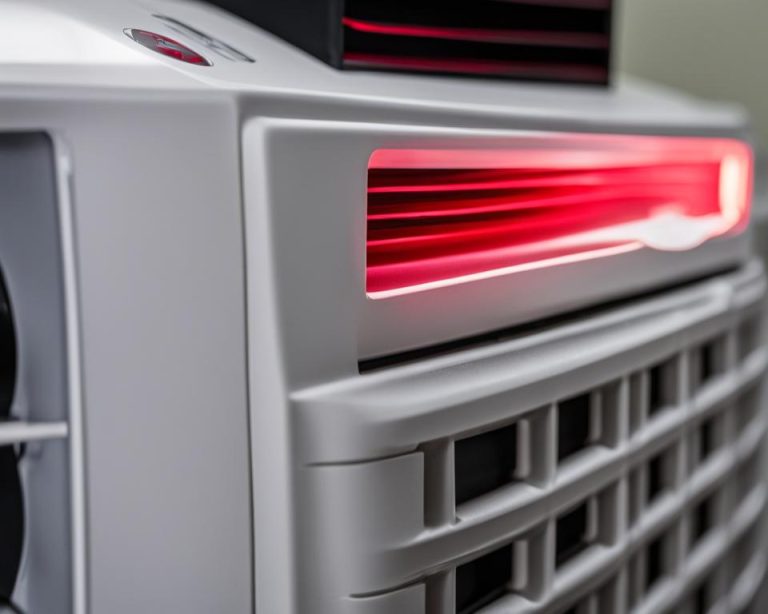
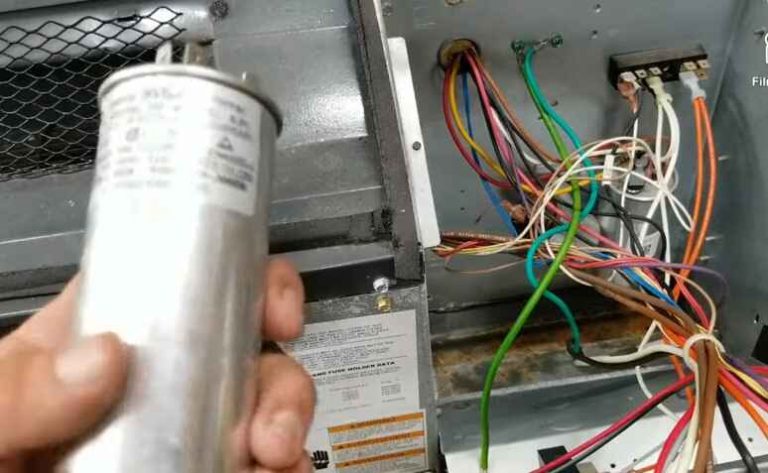
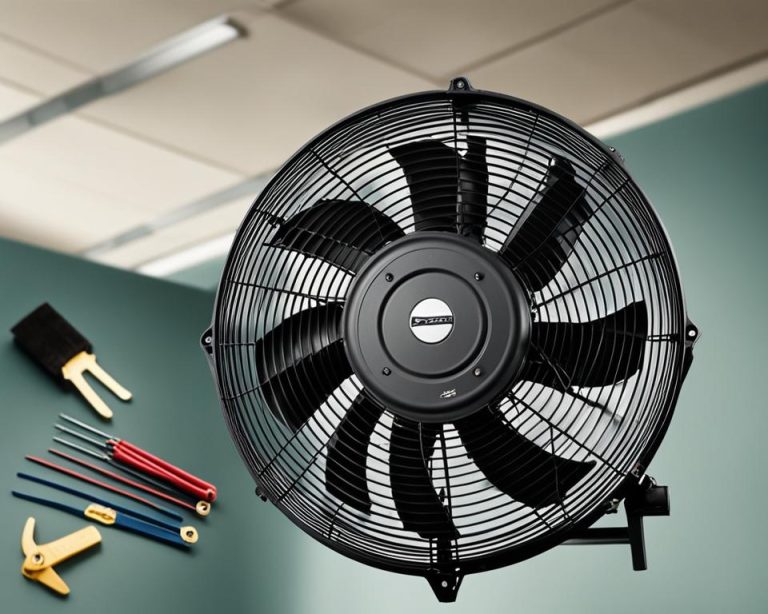
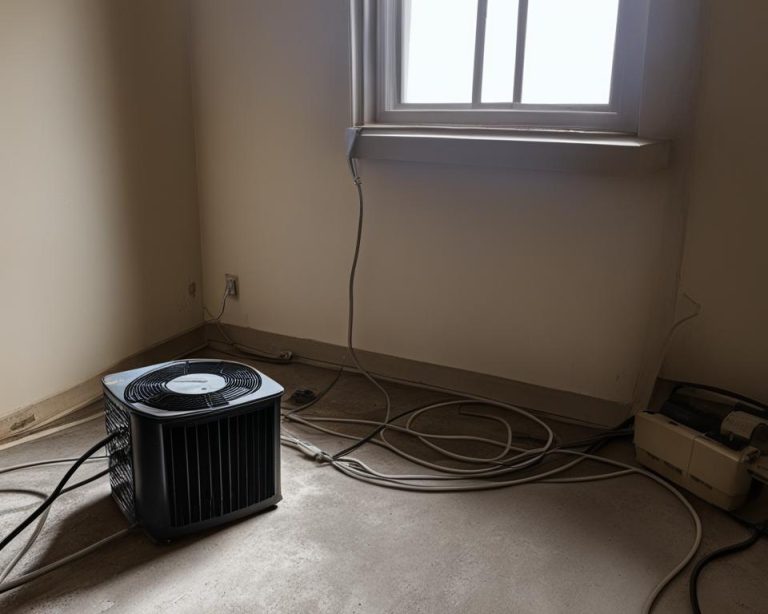
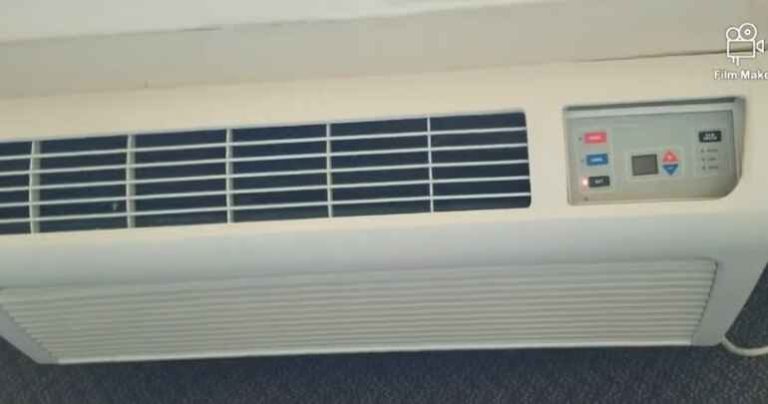
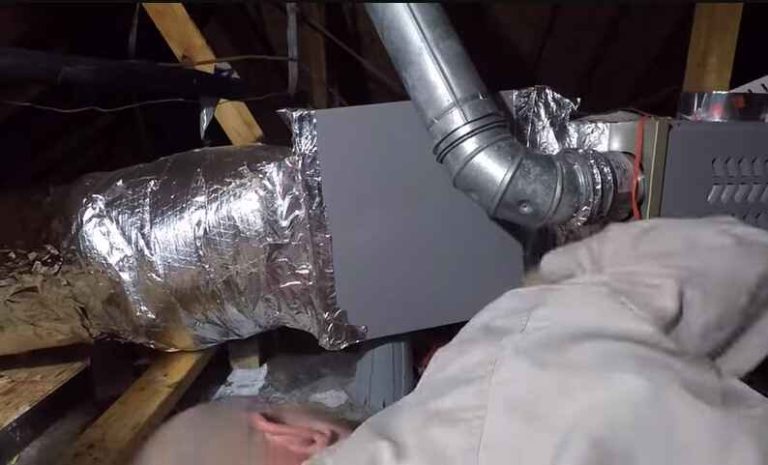
53 Comments